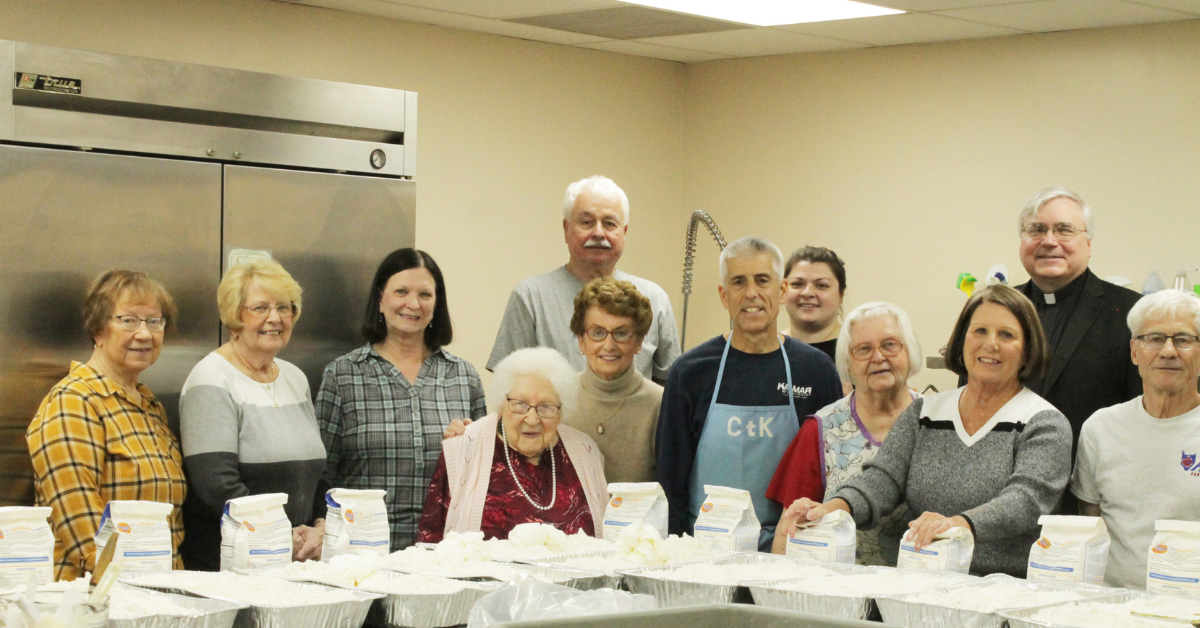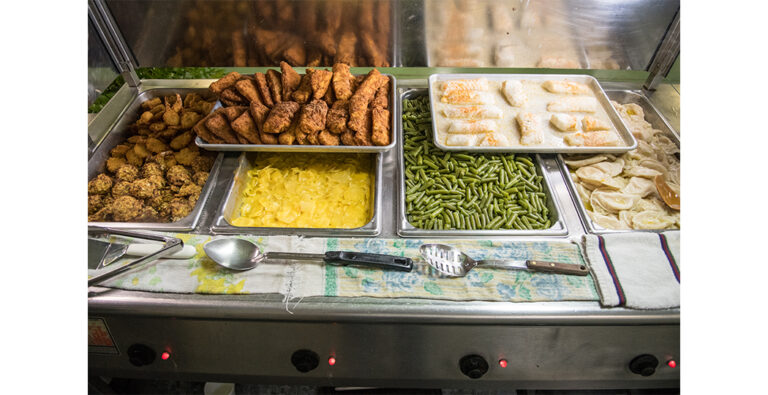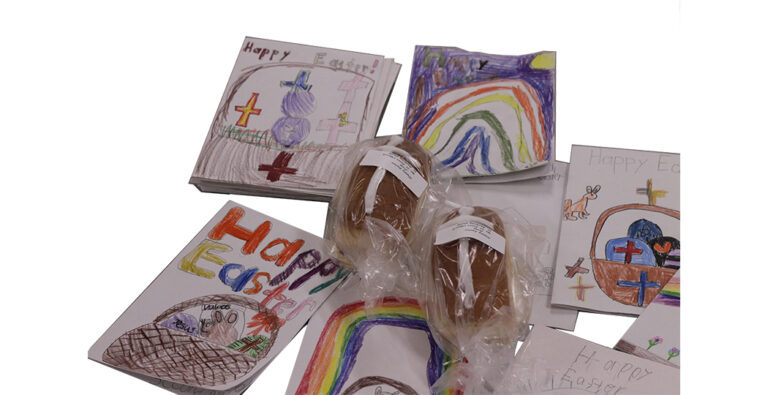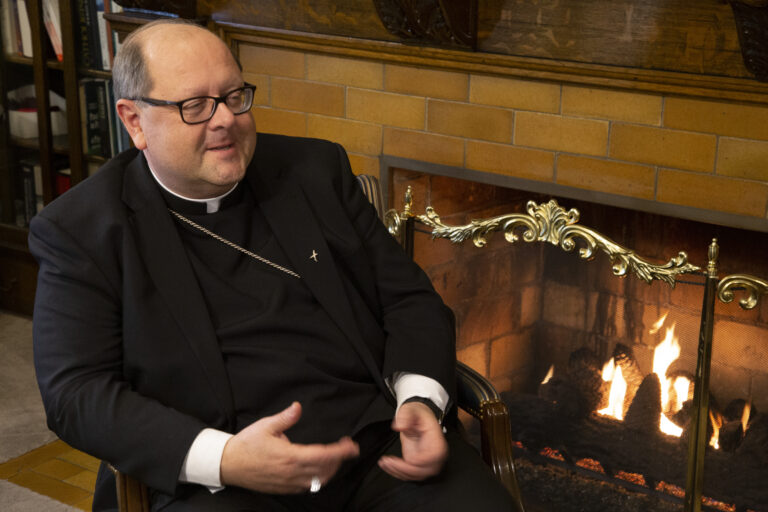
Katrina McGuinness comforts her son, Tommy, at a 2017 diocesan education and prayer session at Immaculate Conception Parish, Connellsville.
Church on front lines of opioid battle
Prayers, action, education part of diocesan parish effort
BY JERRY ZUFELT
EDITOR
When the diocese began its educational and pastoral response to the opioid crisis in 2017, the issue had already become intensely personal.
“I buried too many people, young people,” Father Robert T. Lubic, pastor of the Catholic Community in Connellsville, says as he looks back on the origins of the parishes’ response to the crisis.
Mary Sampey, director of evangelization at the Connellsville parishes, lost her sister, Angela Phillips, to opioid misuse on Dec. 7, 2016, at the age of 34. Phillips was prescribed opioid medication for a health issue, use that became an addiction and led to misuse.
Sampey remembers the embarrassment and stigma that her family felt during her sister’s battle.
“Father Bob was the only person who knew,” she said.
After talking with Father Lubic, they realized something had to be done. The community — at that time composed of Immaculate Conception, St. John the Evangelist and St. Rita parishes —started a Nar-Anon group, a 12-step program for friends and families of people suffering from substance misuse disorders, and a grief support group for friends and families who suffered the loss of a loved one to drugs.
Also, intentions were added to the Prayers of the Faithful.
“I think emphasizing the spiritual aspect is important,” Father Lubic says. “Prayer is part of this. The fact that we were praying and making it a priority was very powerful.”
The chaplain at Geibel Catholic Junior-Senior High School, Connellsville, Father Lubic designed a Lenten prayer program for young people suffering from addictions, asking students to pray for specific people every day.
Sampey says she cannot imagine how a person could deal with the addiction and death of a loved one without having a relationship with God.
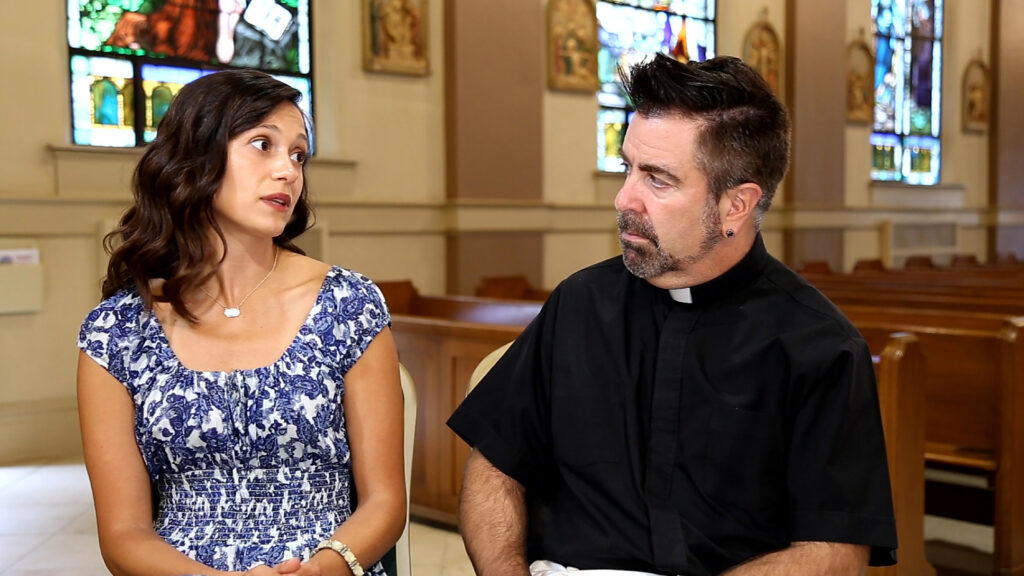
Mary Sampey and Father Robert T. Lubic discuss the Connellsville Catholic Community’s response to the opioid crisis at St. Rita Parish, Connellsville.
The overdose death toll hit a record high 319 people in the diocese’s four counties in 2016, which prompted Bishop Edward C. Malesic to write a letter, “A Pastoral Letter on the Drug Abuse Crisis: From Death and Despair to Life and Hope,” and a prayer that was provided to every parish in the diocese.
Bishop Malesic said he wanted the diocese and its parishes to do two things that the church does well — teach and pray — so he led seven prayer service events around the diocese with Dr. Paul Niemiec, director of counseling for Catholic Charities, leading an education session prior to prayer. The first one was held in Connellsville, where Niemiec and the bishop both stressed the need to overcome the stigma and shame of drug abuse in order to talk with one another.
Several people gave heartbreaking, personal testimonies about the opioid crisis’ impact on their families and loved ones at the Connellsville session, including Katrina McGuinness and her son, Tommy. She praised the support of the parish community for both her and Tommy and described how addiction tears a family apart. He explained the pain of someone in the throes of that struggle.
Tommy lost his battle with opioids June 20, 2018, at the age of 27. Exactly one year later, Katrina talked with “The Accent On-Air” about prayer and her faith during her son’s illness and since his death.
She remembers Tommy was already struggling with drugs when Father Lubic was appointed pastor in Connellsville in 2012.
“At that time, addiction wasn’t something we talked about,” she says. “In their sober moments, they (Tommy and his girlfriend) attended church.
“It was very important for Tommy to know that because addiction is such a force of evil that a force for good would take an interest in him. For addicts, especially when they are struggling, that is a huge self-esteem boost,” says Katrina, who never gave up on her son despite often being told to kick him out of the house.
She believes her son’s good, clean sober moments during his long battle against opioids were the result of prayer, which remains an important part of her daily routine.
“I am committed to my prayer life, have been for years,” she says, adding that she will sometimes begin her day with two hours of prayer.
Even though the death toll from opioid overdoses in the diocese’s four counties has been declining, Father Lubic and Sampey know the fight is not over.
Sampey works with the Fayette County Overdose Task Force and speaks with community and school groups about her sister, the drug problem and where to find help.
In addition, the family started a fund in her sister’s memory through the Community Foundation of Fayette County — The Angela Phillips Memorial Fund — to support groups that provide help to people in need in the community.
“The problem is substance abuse in general,” Father Lubic says. “People are still using, and we still need to be there for them.”
A list of resources for people seeking assistance is on the Catholic Charities website: ccharitiesgreensburg.org.
(Click on Substance Use Disorder Help).
Parishes around the diocese offer various programs and support groups to address the crisis; they are listed on the online calendar at www.dioceseofgreensburg.org.
The prayer, “To Life and Hope,” is available for download or on the back of the The Catholic Accent: Health & Wellness magazine.
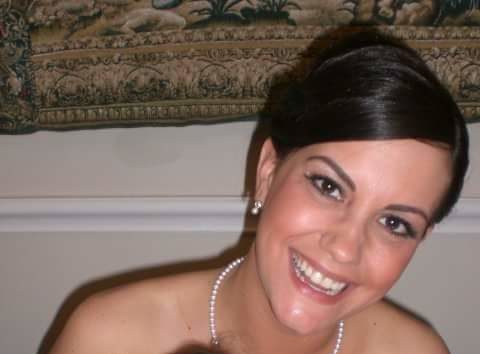
Angela Phillips passed away in 2016.

Tommy McGuinness, left, with his mother, Katrina, and brother Cody.
- Tags:
RELATED STORIES
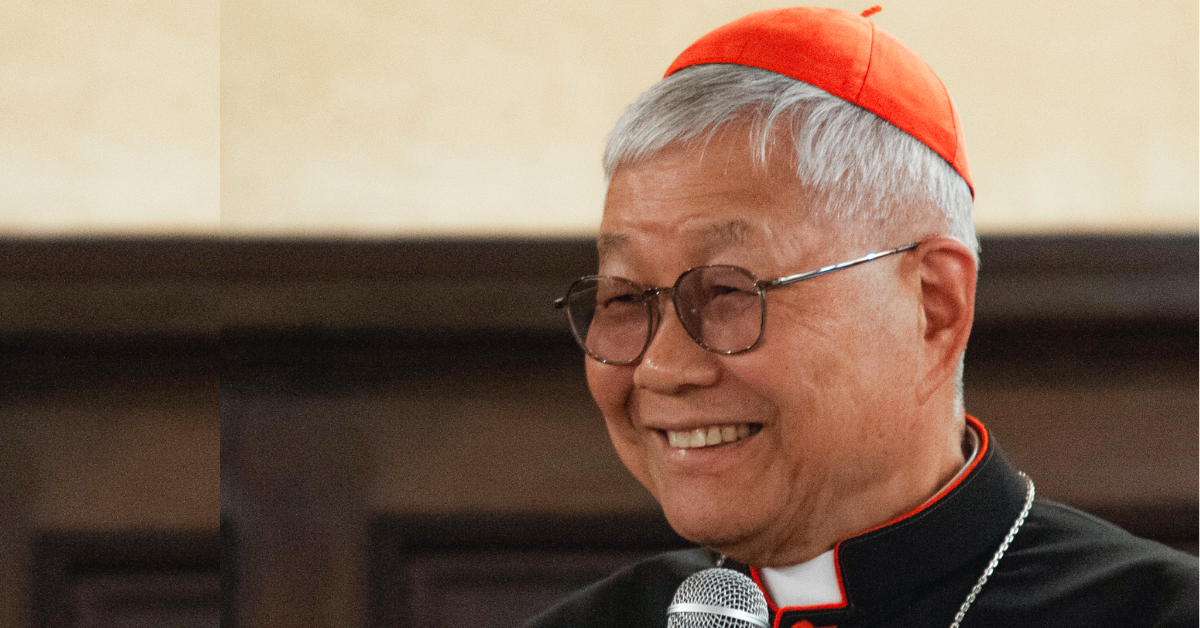
Cardinal: Vocation is call to happiness; right path is discerned in prayer

Catholics Participating in National Eucharistic Pilgrimage and the National Eucharistic Congress Have Opportunities to Receive Plenary Indulgences

New Survey of Men Being Ordained to the Priesthood Underscores the Significant Influence of Parents on Children’s Vocational Discernment
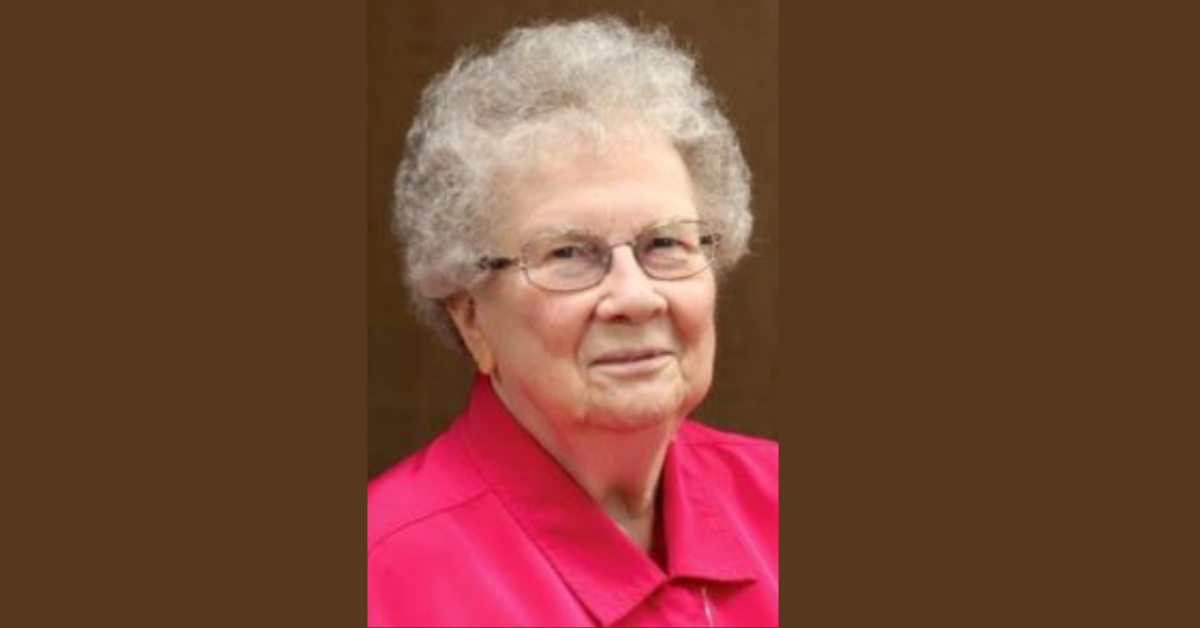
Sister Grace Snyder, a Sister of Saint Francis of the Neumann Communities – Millvale, after 76 years of religious life.

Diocese, Saint Vincent Seminary's IMF partner for formation program
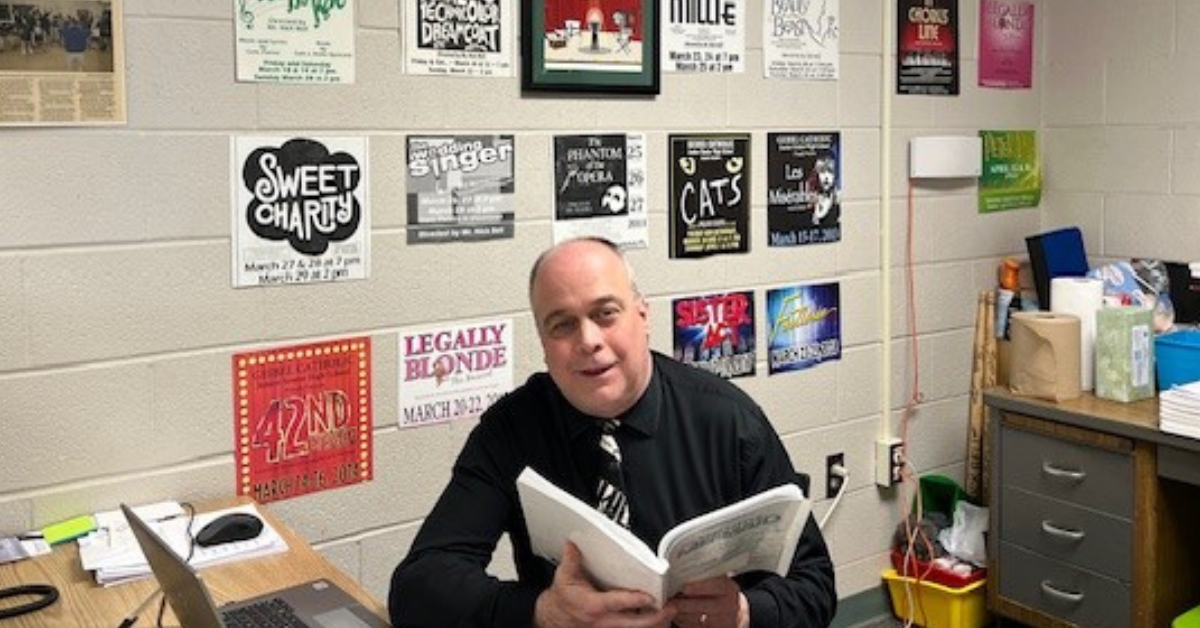
Geibel Catholic's Bell marks 25 years of musicals
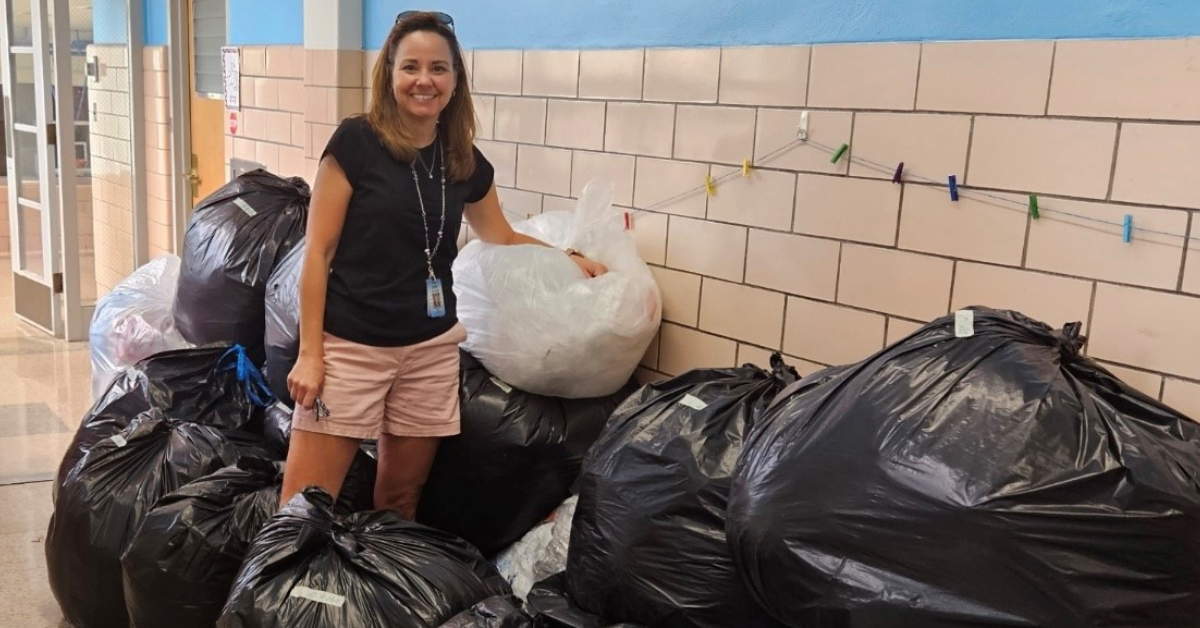
At Aquinas Academy, teamwork turns trash into treasure
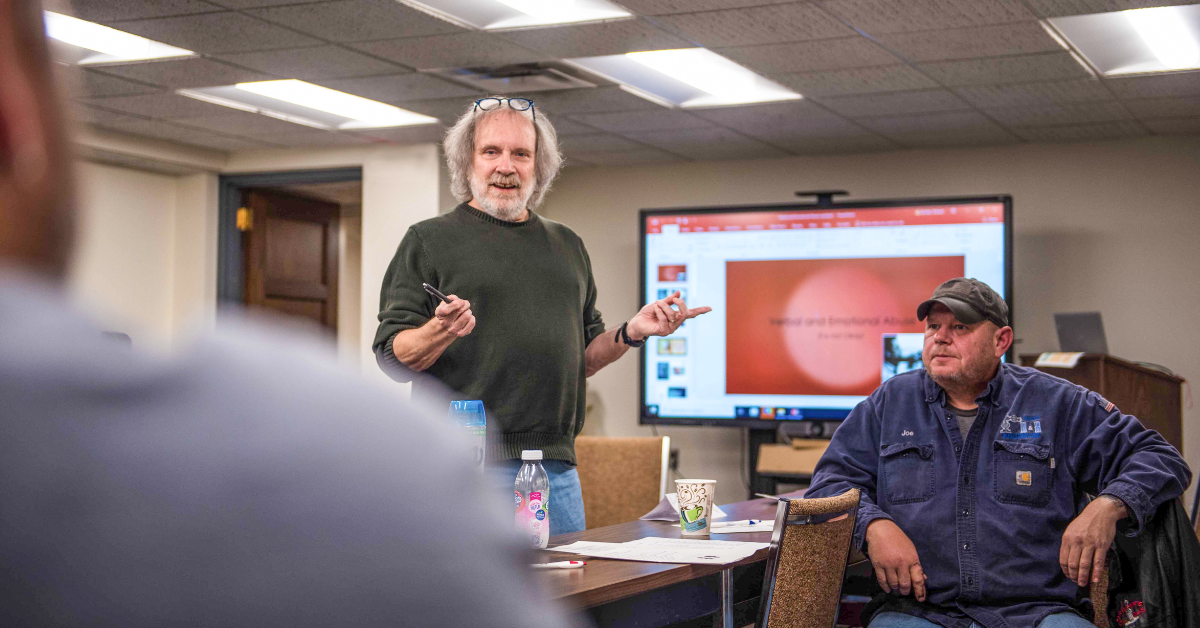
Catholic Charities helping men manage their anger for 31 years
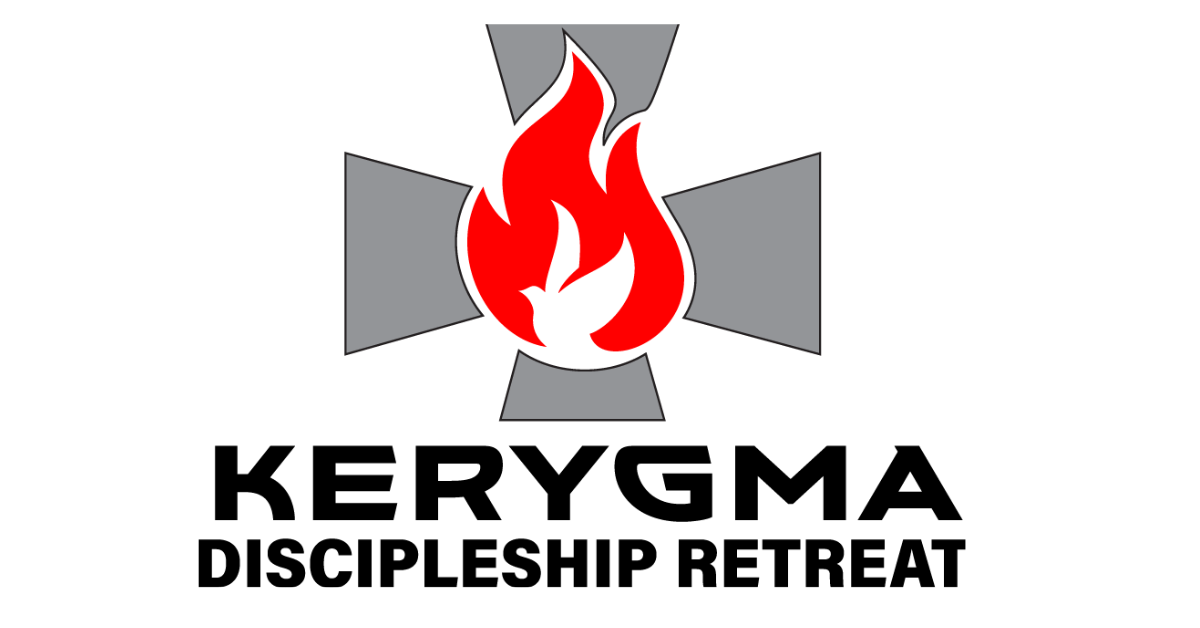
Retreat designed to form a meaningful relationship with Christ
